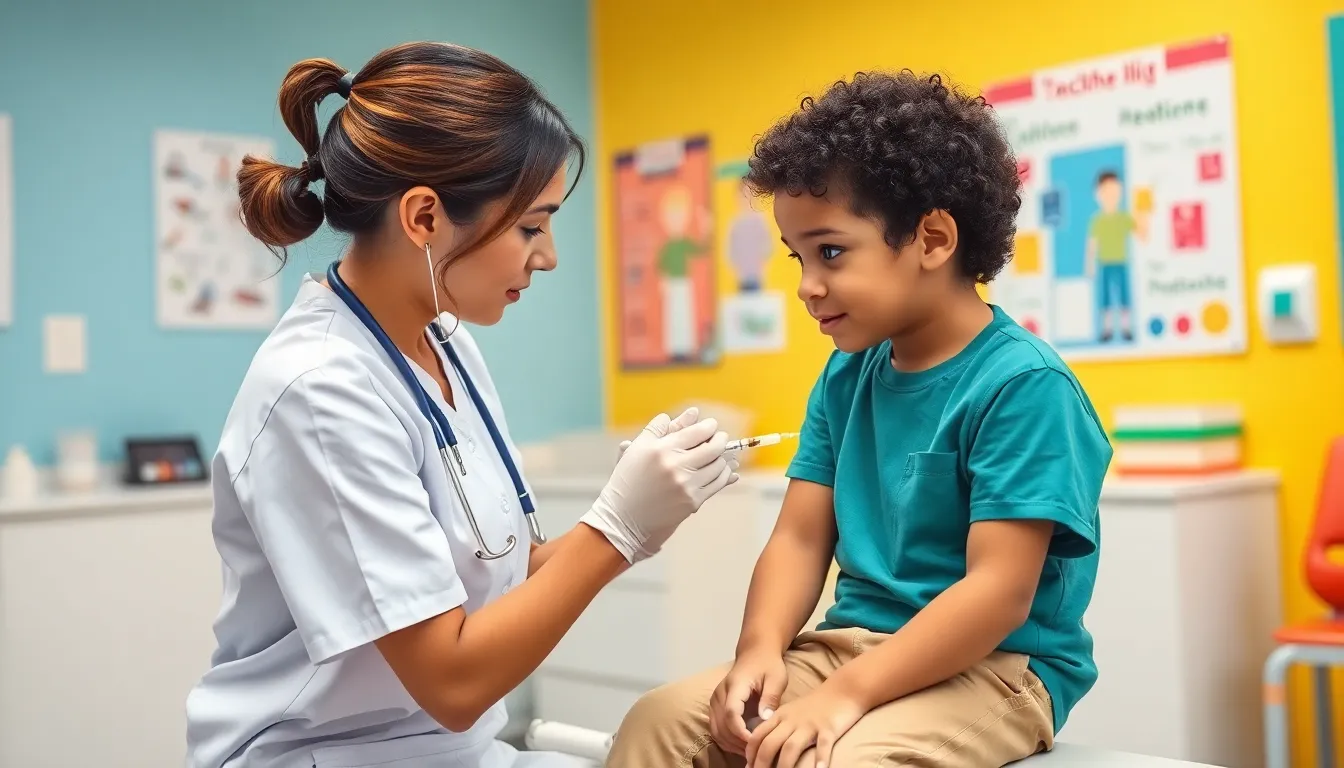As the healthcare landscape evolves, the role of a biotech nurse has emerged as a vital component in bridging the gap between technology and patient care. I’ve seen firsthand how these skilled professionals combine their nursing expertise with cutting-edge biotechnological advancements to improve patient outcomes.
Biotech nurses play a crucial role in administering therapies, conducting research, and educating patients about innovative treatments. Their unique skill set not only enhances the quality of care but also empowers patients to navigate complex medical information. In this article, I’ll dive into what it means to be a biotech nurse and explore the exciting opportunities this career path offers.
Table of Contents
ToggleKey Takeaways
- Role of Biotech Nurses: Biotech nurses combine traditional nursing with biotechnological expertise to enhance patient care and safety in advanced treatment settings.
- Key Responsibilities: Their primary duties include administering therapies, conducting research, educating patients, and collaborating with healthcare teams to optimize treatment outcomes.
- Educational Requirements: A Bachelor of Science in Nursing (BSN) and valid RN license are essential, with additional certifications in biotechnology boosting career opportunities.
- Diverse Career Opportunities: Biotech nurses can work in various settings such as hospitals, research institutions, pharmaceutical companies, and home health care, each requiring adaptability and specialized knowledge.
- Positive Job Outlook: The demand for biotech nurses is projected to grow due to advancements in biotechnology and an aging population, with potential salaries exceeding $100,000 in advanced roles.
- Challenges in the Field: Biotech nurses face challenges such as rapid technological advancements, managing complex patient needs, and addressing ethical issues while maintaining emotional resilience.
Overview of Biotech Nursing
Biotech nursing combines traditional nursing practices with advanced biotechnological skills. This specialty focuses on patients who require cutting-edge therapies, such as gene therapy and monoclonal antibodies. Biotech nurses perform critical roles in healthcare settings, ensuring that patients receive effective treatments tailored to their unique conditions.
Key responsibilities of biotech nurses include:
- Administering Therapies: Biotech nurses oversee the delivery of specialized treatments, ensuring proper administration and monitoring for adverse effects.
- Conducting Research: These professionals participate in clinical trials, collecting data to support the development of new therapies and improve existing treatments.
- Educating Patients: Biotech nurses inform patients about complex biotechnological interventions, addressing their questions and concerns to enhance understanding and compliance.
- Collaborating in Teams: They work closely with healthcare providers, researchers, and technical staff to optimize patient care and implement innovative medical solutions.
Education and training for biotech nurses typically require a nursing degree and specialized knowledge in biotechnology. Most professionals in this field possess a Bachelor of Science in Nursing (BSN), often advancing to obtain certifications in biotechnology or related areas. This expertise equips biotech nurses with the skills necessary to navigate the rapidly evolving landscape of healthcare technology.
Roles and Responsibilities of a Biotech Nurse

Biotech nurses play a crucial role in patient care, leveraging their expertise in biotechnology to enhance treatment outcomes. Their responsibilities encompass a wide range of tasks aimed at ensuring effective patient support and collaboration with healthcare teams.
Patient Care and Support
Biotech nurses provide direct patient care, which includes administering advanced therapies, monitoring patient responses, and managing side effects. They educate patients about treatment protocols and address concerns regarding new biotechnological interventions. Furthermore, biotech nurses assist in developing personalized care plans that align with the latest research and therapies, ensuring patients receive optimal support tailored to their unique needs.
Collaboration with Healthcare Teams
Biotech nurses collaborate closely with multidisciplinary healthcare teams, integrating insights from various specialists to coordinate comprehensive care. They facilitate communication between physicians, researchers, and other nursing staff, ensuring everyone is informed about patient progress and therapeutic adjustments. Their input helps optimize treatment approaches, enhance data collection for research purposes, and promote adherence to protocols aimed at improving patient outcomes.
Education and Training Requirements
Education and training for biotech nurses focus on a blend of nursing principles and biotechnological expertise. Attaining a robust foundation is essential for success in this specialized field.
Essential Skills for Biotech Nurses
- Clinical Knowledge: Biotech nurses must possess strong clinical skills, enabling them to deliver patient care effectively.
- Technical Proficiency: Familiarity with biotechnological tools and treatments is crucial, as biotech nurses often work with advanced therapies.
- Communication Skills: Clear communication is important for educating patients about treatments and collaborating with healthcare teams.
- Analytical Skills: Ability to assess patient responses to therapies and analyze research data enhances patient care.
- Team Collaboration: Biotech nurses work with multidisciplinary teams, requiring strong interpersonal skills to facilitate cooperation among various professionals.
- Registered Nurse (RN) License: A valid RN license is mandatory, achieved through passing the NCLEX-RN exam after completing a nursing degree.
- Bachelor of Science in Nursing (BSN): Many biotech nurses hold a BSN, which provides comprehensive training in nursing and healthcare.
- Advanced Certifications: Additional certifications in biotechnology or related fields, such as Certified Clinical Research Associate (CCRA), can improve career prospects and demonstrate expertise.
- Continuous Education: Engaging in ongoing training and professional development ensures nurses stay updated on the latest biotechnological advancements and practices.
Career Opportunities in Biotech Nursing

Biotech nursing offers a range of opportunities across various healthcare settings. Understanding the job environments and potential salary can aid in making informed career decisions.
Job Settings and Environments
Biotech nurses work in diverse job settings, including:
- Hospitals: They assist in administering therapies and managing patient care in specialized units.
- Research Institutions: They engage in clinical trials and research studies, providing essential nursing support.
- Pharmaceutical Companies: They collaborate with teams to develop and test new biotechnological products.
- Patient Care Facilities: They offer specialized care for patients receiving advanced therapies, ensuring treatment protocols are followed.
- Home Health Care: They provide at-home support, educating patients on treatment regimens and monitoring health status.
Each environment demands adaptability and a strong understanding of both nursing and biotechnology principles.
Potential Salary and Job Outlook
Biotech nursing presents competitive salary potential and a positive job outlook. According to the U.S. Bureau of Labor Statistics, registered nurses average around $77,600 annually. Biotech nurses may earn higher salaries depending on their specialization and experience, possibly exceeding $100,000 in advanced roles.
The job outlook for registered nurses projects a growth rate of 6% from 2021 to 2031, driven by ongoing advancements in biotechnology and an aging population needing specialized care. This trend positively impacts the demand for biotech nurses as healthcare facilities increasingly adopt innovative treatments.
Challenges Faced by Biotech Nurses
Biotech nurses encounter various challenges in their roles that can affect their daily practice and patient care.
Keeping Up with Rapid Advancements
Biotechnology evolves swiftly. Biotech nurses must stay informed about the latest treatments, technologies, and breakthroughs. Continuous education through conferences, workshops, and journal subscriptions becomes essential to provide the best care.
Managing Complex Patient Needs
Patients receiving biotechnological therapies often present complex medical histories and unique responses to treatment. Biotech nurses face the challenge of tailoring care plans for individual patients, requiring critical thinking and adaptability.
Addressing Regulatory and Ethical Issues
Biotech nurses navigate a landscape filled with regulations and ethical considerations. Obtaining informed consent for experimental treatments is vital. Understanding the ethical implications of new therapies can pose challenges in patient communication and support.
Balancing Multidisciplinary Collaboration
Working with various healthcare professionals is common. Biotech nurses must effectively communicate with physicians, researchers, and pharmacists. Maintaining collaborative relationships while addressing diverse perspectives can complicate care coordination.
Handling Emotional Strain
Caring for patients with serious illnesses can be emotionally taxing. Biotech nurses often support patients and families through distressing diagnosis and treatment processes. The emotional burden requires resilience and strong coping strategies.
Overcoming Technological Hurdles
Utilizing advanced biotechnology tools and equipment can be daunting. Biotech nurses often face technical challenges when operating complex devices or software. Regular training and troubleshooting skills become necessary for effective operation.
Adhering to Safety Protocols
Biotech nurses must adhere to strict safety guidelines when administering potent therapies. Ensuring compliance with protocols helps minimize risks. Vigilance in monitoring patients during and after treatments remains paramount to prevent adverse effects.
The role of biotech nurses is truly transformative in today’s healthcare landscape. They bridge the gap between cutting-edge technology and compassionate patient care. With their unique blend of nursing skills and biotechnological knowledge, they’re essential for improving patient outcomes.
As I look to the future, it’s clear that the demand for biotech nurses will only grow. Their ability to adapt to new advancements and tackle complex challenges will continue to shape the way we deliver healthcare. For those considering this career path, the opportunities are vast and rewarding, both personally and professionally.




